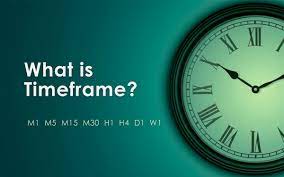What is a TimeFrame?
A TimeFrame
 A timeframe in technical analysis refers to the length of time represented by each individual bar or candlestick on a chart. For example, a daily timeframe would show one bar or candlestick per day, while a 15-minute timeframe would show one bar or candlestick every 15 minutes.
Different timeframes are used by traders and investors to analyze price movements in different ways. Shorter timeframes, such as 1-minute or 5-minute charts, are often used by day traders or scalpers who seek to profit from short-term price movements. Longer timeframes, such as weekly or monthly charts, are often used by longer-term investors who are interested in the bigger picture and trends in the market.
Using multiple timeframes, or "timeframe analysis," can provide a more comprehensive view of the market and help traders identify trading opportunities. For example, a trader may use a daily chart to identify the overall trend of a security and a shorter timeframe, such as a 1-hour chart, to identify specific entry and exit points.
It`s important to note that different timeframes can produce different signals and trends, so traders must use discretion and combine their analysis with other technical indicators and market data to make informed trading decisions. |
Latest Stock Market Tutorials
| 1. What is Descending Triangle Pattern? |
| 2. What is Bearish Pennant Pattern? |
| 3. What is Bearish Flag Pattern? |
| 4. What is Rising Wedge Pattern? |
| 5. What is Double Top Pattern? |
Free Stock Market Tutorials
| 1. Free Fundamental Analysis Course |
| 2. Free Technical Analysis Course |
| 3. Free Price Action Trading Course |
| 4. Free Futures & Options Course |
IMPORTANT ALERT! Information Posting in this website is only for educational purpose. We are not responsible for losses incurred in Trading based on this information.